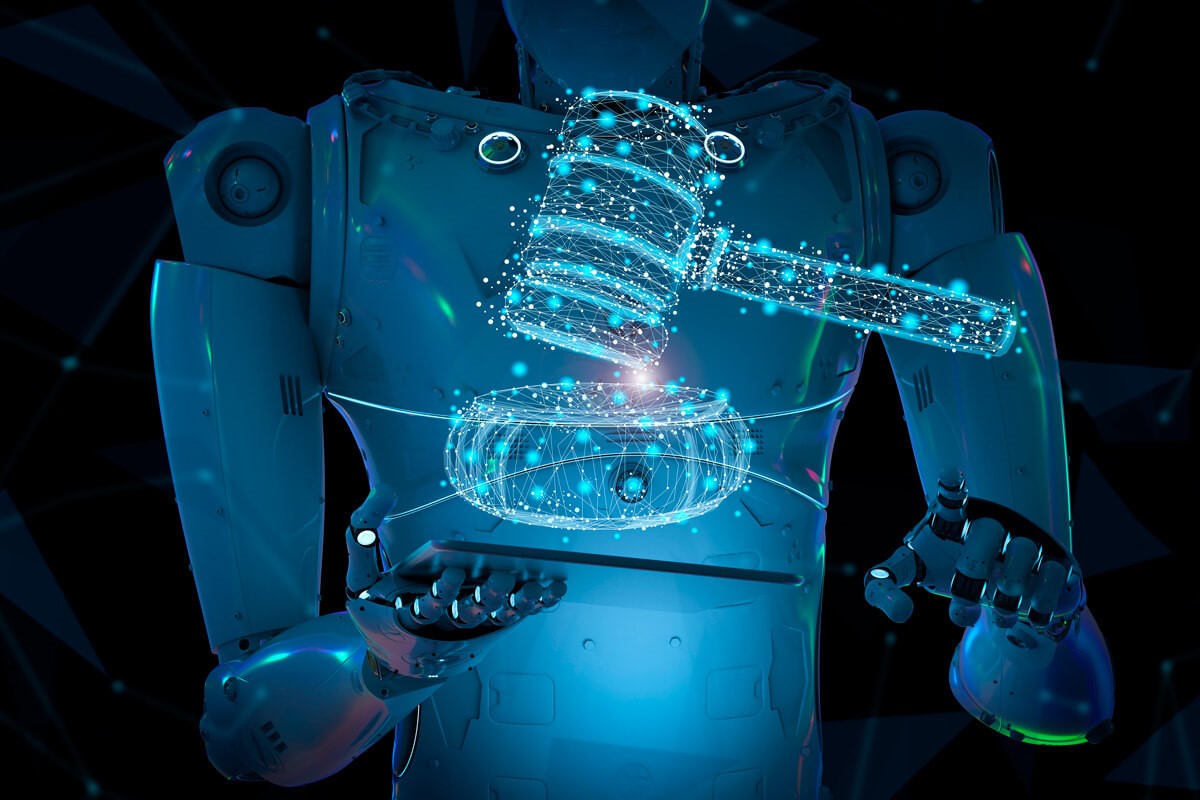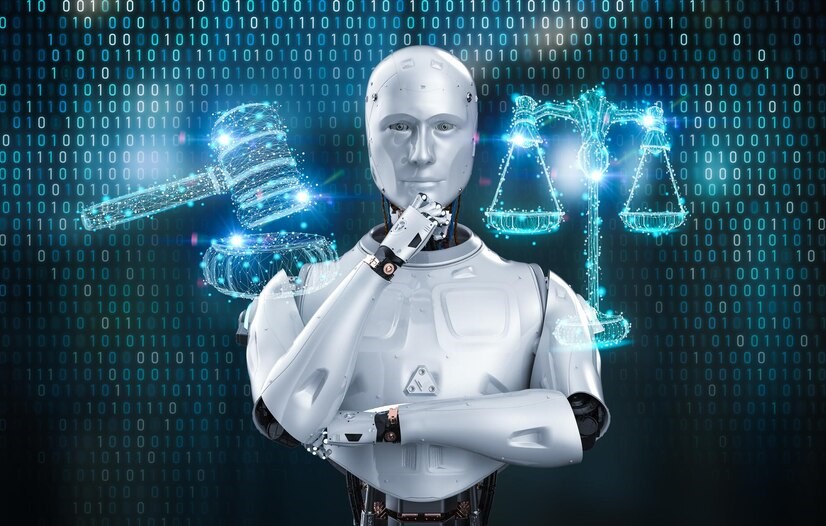How is Artificial Intelligence assisting Law?
Though (AI) artificial intelligence is today seamlessly incorporated into everyday life, the regulation of the technology is still in its infancy. Artificial intelligence does make life easier through human profiling, machine learning solutions, automated decision making, and more, but at the cost of rising biases and discrimination and also a swarm of liability, ethics, behavioral, and accountability challenges.
To ensure that the legal considerations are properly addressed, AI Lawyer supports companies in both validating their services and goods from a legal standpoint and refining their design. Clients are advised to include the proper clauses, terms, and conditions, and also disclosure necessities to ensure transparency, in the contracting stage.
Role of AI in the Legal Industry
With the exploding data worldwide, even if that enormous database is filled with a ton of helpful information, it takes a ton of time to examine, especially when it comes to the practice of law. Additionally, there is the constant requirement for speed to meet client, court, and regulatory agency demands, and also the monotony, tedium, and frustration experienced by people trying to complete laborious work. Together, these difficulties create what seems to be an insurmountable barrier to maintaining a sensible, effective law practice – at best for regular humans who occasionally need to take breaks for food and rest.
Fortunately, computers are advancing at a rate equal to that of the data explosion, and they have come to their best to save us. AI refers to computer systems and software that actively learn as they operate, enhancing their performance through feedback rather than merely doing tasks for which they have been pre-programmed. The data-intensive jobs that were previously left to bored and worn-out humans can now be completed by these programs in a short amount of time. Computers learn how to find relevant information, notice errors, and spot inconsistencies; all faster and generally better than humans do—by identifying patterns in the relationships among data or word points.
The following broader groups represent the main applications of AI in law to date:
- Technology-Assisted Review (TAR) is the broad term for the process of reviewing papers for information that might be discoverable or otherwise relatable.
- Computerized searches of a vast body of case statutes and law for legal research.
- Legal and contract document analysis.
- Error correction, proofreading, and document organization.
How any Law Firm is assisted by Artificial Intelligence Applications?
Let’s talk about the top seven advantages of using AI in legal companies. When noticed, readers will come to know that these advantages are all connected. It’s obvious how time-saving can lead to financial savings, but putting off boring tasks can also free up lawyers’ creative time and lower their stress levels. Together, greater productivity and reduced stress enable lawyers to perform tasks more quickly, which ultimately saves time.
Be sure to think holistically and consider all the advantages when examining how AI might help a law firm and legal profession.
1. AI Saves a Lot of Time:
Time savings are the biggest and obvious pros of AI use. In a little fraction of the time, computers can assess more data than humans. All forms of AI applications can benefit from this feature. In short, computers can:
- Undertake legal research that would take experienced attorney days to accomplish
- Searching through and identifying potentially relevant or discoverable material of all formats and file types.
- Examine contracts and other papers for grammatical mistakes, missing details, and inconsistent phrasing.
Naturally, the time savings might result in cost savings as it takes the lawyer or staff less time to find answers and spot mistakes. These savings, which can subsequently be passed on to the customers, can quickly balance the cost of new technology.
2. AI Produces Superior Quality Work:
Truly error-free work can be generated by intelligent software, which doesn’t grow weary, bored, or distracted. Specialized document software can improve document organization and flawlessly preserve that structure throughout the life of the document, including all internal cross-references.
In addition, regardless of how many lawyers participated in the drafting, such software can guarantee that terminology is used consistently. Software like contract comparison tools can find missing conditions or clauses, inconsistently used terminology, or ambiguous phrases both inside a single document and across a pool of related agreements using document comparison and machine learning.
3. AI allows more Accuracy:
(TAR) Technology-Assisted Research Information can be reviewed in real-time using review techniques like predictive coding. Hence, lawyers are better able to anticipate risks, counsel clients correctly about their exposure, and prevent legal issues before they arise. These clever solutions enable legal firms to swiftly identify pertinent information and specify the range of custodians and data that must be safeguarded when a lawsuit has been initiated, or even just threatened. With more information available, law firms are better able to predict outcomes, reducing costs and risks while safeguarding the reputations of both their clients and themselves.
4. AI enhances Logical and Organizational Structure:
Attorneys can more rapidly find gaps or weaknesses in their documentation, including in their legal assessments, with the use of automatic document organizing and comparison. For instance, algorithms for contract analysis that have gained knowledge through repeated analysis are able to spot missing definitions or terms in well-known contract types. Similar to how logical connections that haven’t yet been clearly established in a legal memo can be discovered through document analysis, allowing lawyers to return and reinforce their weak points. The overall logical flow and structure of the document are improved for both by clever software that maintains internal organization and enables attorneys to swiftly and easily navigate between various levels and views.
5. AI improves Identification and Creative Analysis of Influential Precedents:
AI allows more energy and time for lawyers for higher-level work by computerizing document review, quality control, and research. This encourages innovation, allowing lawyers to provide unique value and completely focus on the duties that computers can’t handle. Increased trust in outcomes also allows lawyers the freedom they could take chances and consider different strategies. Attorneys can experiment with different legal analyses or fact patterns using clever legal research software to determine the most effective course of action. Comparisons between cases in other states or between federal and state courts don’t need to be done by laboriously and tiresome scanning over the course of days.
The Summary
AI is modernizing the legal sector by assisting businesses in becoming more productive and efficient. Predictive analytics, document management, and other AI-powered services save lawyers effort and time while enabling them to concentrate on more complicated legal issues. By accepting AI, legal firms can use intelligent technologies to help with time-consuming and administrative duties, freeing up lawyers to use their skills where they are most needed.


